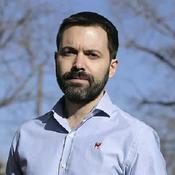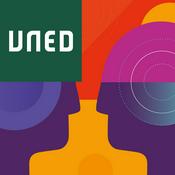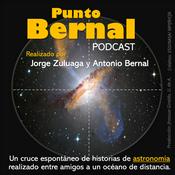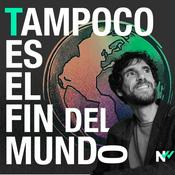23 episodios
Migration Talks: Forced or free to move? Insights from Finland and Mozambique on displacement, climate and the cost of starting over.
24/7/2025 | 27 minIn this episode of Migration Talks, researchers Sandra Sequeira (London School of Economics) and Dominik Hangartner (ETH Zurich) take us into two very different contexts with surprising parallels. From post-conflict displacement in Mozambique to internal migration policies in post-war Finland, the conversation explores what drives people to move, and what happens when that movement is shaped less by choice than by circumstance.
How does displacement affect long-term human capital? What incentives and policies help or hinder new beginnings? And how do people reconstruct lives, communities, and futures when they’re uprooted?
This episode offers a comparative perspective on forced migration, resettlement, and the enduring resilience of people navigating constrained choices.
Resources mentioned in the episode:
📄 Forced Displacement and Human Capital: Evidence from Separated Siblings, by Giorgio Chiovelli, Stelios Michalopoulos, Elias Papaioannou, and Sandra Sequeira (NBER Working Paper)
📄 The Intergenerational Effects of Forced Migration on Human Capital and Personality Traits, by Dominik Hangartner et al.
Stay connected:
🌐 Online: rfberlin.com
🔗 LinkedIn: linkedin.com/company/rockwool-foundation-berlin
🐦 X/Twitter: @RF_Berlin
🎥 YouTube: youtube.com/@RFBerlinMigration Talks: Who Gets to Rise? Immigrant mobility through the lens of data, history, and policy.
17/7/2025 | 18 minIn this episode of Migration Talks, Professor Leah Boustan (Princeton University) explores what shapes upward mobility for immigrants and who actually gets to rise.
Using research, historical records, big data and today’s technology, Boustan takes us through the story of how immigrants and their children find their path. What do we get wrong when we idealize past success stories? How do today’s children of immigrants compare to previous generations? And what role do education, neighborhoods and policy play in shaping long-term outcomes?
Resources mentioned:
Book: Streets of Gold: America’s Untold Story of Immigrant Success (Leah Boustan & Ran Abramitzky)
Research: Computational analysis of 140 years of US political speeches
reveals more positive but increasingly polarized framing of
immigration by Boustan et al.
Stay connected:
🌐 Online: rfberlin.com
🔗 LinkedIn: linkedin.com/company/rockwool-foundation-berlin
🐦 X/Twitter: @RF_Berlin
🎥 YouTube: youtube.com/@RFBerlinMigration Talks: Who Stays, Who Returns? What Ukrainians and other refugees do after forced migration
10/7/2025 | 22 minIn this episode, Panu Poutvaara (ifo Center for Migration and Development Economics) and Damla Buyuktaskin (UNHCR, the UN Refugee Agency) discuss what happens after displacement: who returns, who stays, and why?
Focusing on Ukrainian refugees and broader global contexts, they discuss what influences return intentions, how host countries support (or hinder) integration, and the challenges of creating long-term solutions for displaced populations. From access to work and education to regional legal frameworks, this conversation lists difficult choices faced by millions.
Resources mentioned in the episode:
📄 Study: The Effect of Conflict on Ukrainian Refugees’ Return Intentions and Integration Outcomes (Poutvaara et al.)
🌐 UNHCR Programs: https://www.unhcr.org
Stay connected:
🌐 Online: rfberlin.com
🔗 LinkedIn: linkedin.com/company/rockwool-foundation-berlin
🐦 X/Twitter: @RF_Berlin
🎥 YouTube: youtube.com/@RFBerlinMigration Talks: Securing borders to secure votes? Public perception and EU Migration Policy
03/7/2025 | 24 minIn this episode, Christian Dustmann (UCL, RFBerlin) and Tommaso Frattini (University of Milan, RFBerlin) discuss the politics of EU border control. As headlines increasingly focus on “securing borders,” they ask: Are these efforts really addressing the underlying challenges, or are they shaped more by public perception and political pressure?
From shifting migration routes to policy trade-offs between security and economic needs, this conversation offers timely insights into one of Europe’s most debated topics.
Resources mentioned in the episode:
📘 Global Migration Information Dashboard
📄 "Border Policies and Unauthorized Flows" by Francesca Fasani & Tommaso Frattini
Stay connected:
🌐 Online: rfberlin.com
🔗 LinkedIn: linkedin.com/company/rockwool-foundation-berlin
🐦 X/Twitter: @RF_Berlin
🎥 YouTube: youtube.com/@RFBerlin- In this podcast episode dedicated to the new edition of the Handbook of Labor Economics, Professor Suresh Naidu from Columbia University discusses the recent resurgence of union power, for example, in the context of the successful United Auto Workers (UAW) strike in 2023.
The conversation highlights several key points with policy implications: Do unions affect inequality? How effective is union membership? Do they protect the rights and the benefits of union members, or do they have spillover effects in the rest of the labour market?
Professor Naidu takes a historical perspective and discusses the shift in the balance of power between employers and workers over the 20th century, up to the post-COVID era, characterized by a tight labour market and high corporate profits. He argues that the spillover effects of union-negotiated contracts can raise wages even for non-union workers, suggesting that a stronger union presence could be a tool for addressing income inequality on a broader scale.
Stay connected:
🌐 Online: rfberlin.com
🔗 LinkedIn: linkedin.com/company/rockwool-foundation-berlin
🐦 X/Twitter: @RF_Berlin
🎥 YouTube: youtube.com/@RFBerlin
Más podcasts de Ciencias
Podcasts a la moda de Ciencias
Acerca de RFBerlin Podcast Series
Welcome to the RFBerlin Podcast Series presented by the ROCKWOOL Foundation Berlin. This series is dedicated to disseminating cutting-edge research on the economy, society and the welfare state to members of the academic community and beyond. In each episode of the RFBerlin Podcast series, we invite leading scholars and experts to discuss the key challenges facing labour markets and wage earners across the globe. Join us to hear these experts discuss recent economic trends, new technologies, outsourcing, migration and what governments can do to mitigate instability and more.Our podcast brings you up to date on the latest empirical research without any complicated mathematical formulas or data sets. Whether at home, at the office or on the road, we look forward to welcoming you wherever you choose to listen!
Sitio web del podcastEscucha RFBerlin Podcast Series, Heavy Mental y muchos más podcasts de todo el mundo con la aplicación de radio.es

Descarga la app gratuita: radio.es
- Añadir radios y podcasts a favoritos
- Transmisión por Wi-Fi y Bluetooth
- Carplay & Android Auto compatible
- Muchas otras funciones de la app
Descarga la app gratuita: radio.es
- Añadir radios y podcasts a favoritos
- Transmisión por Wi-Fi y Bluetooth
- Carplay & Android Auto compatible
- Muchas otras funciones de la app


RFBerlin Podcast Series
Escanea el código,
Descarga la app,
Escucha.
Descarga la app,
Escucha.







































